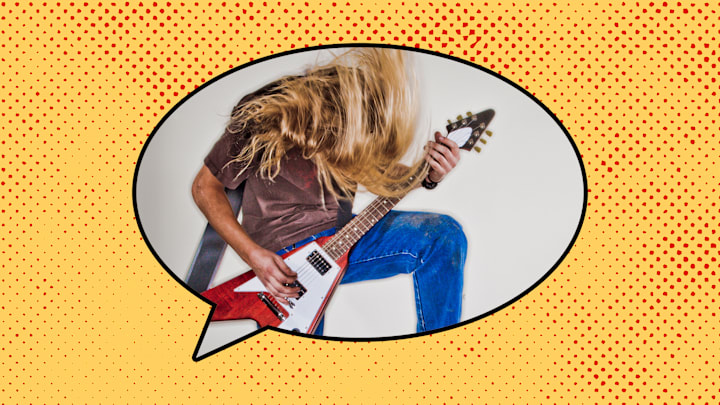They may have lacked the social media platforms of Generation Z and Millennials, but members of Generation X found ways to establish their own lingo when they were coming of age. Gen X, the demographic born between the years 1965 and 1980, was often depicted as relaxed, cynical, and music-loving at their cultural peak in the 1980s and ’90s—and plenty of the slang they used reflects that. Below is a list of words Gen X made popular, and if you still aren’t sure where Generation X ends and Millennials begin (or how Gen Z and Gen Alpha fit into the equation), we break it down for you here.
1. Chill Pill
The phrase take a chill pill first popped up in the early 1980s; Green’s Dictionary of Slang defines it as “a metaphorical ‘medicine’ that acts to calm one down.” So basically, a Gen Xer using this phrase was saying, “relax.”
2. Gnarly

Gnarly has been around for a long time; the OED’s first citation goes back to the mid-19th century, when it was basically just another of saying “gnarled.” But in the 1970s, a new sense — “dangerous, challenging”—emerged from surf culture, and from there, it came to be used to refer to things that were unattractive, or attractive, or awesome, or scary, depending on the context. According to Green’s, we have 1982’s Fast Times at Ridgemont High to thank for the phrase taking off.
3. Rock
Grunge and punk rock music rose to prominence when Gen Xers were in their teens and twenties. We can thank these trends for giving us rock, which was first used as a verb meaning “to be excellent” around the early 1980s.
4. Headbanger

The term headbanger has been around since at least the 1930s, when it was mostly used to refer to babies who shook their heads repeatedly. But then Gen-X found a new way to rock out to grunge, alt-rock, and heavy metal, and headbanger came to refer to people who either engaged in headbanging, or were fans of music they could headbang to.
5. and 6. Yuppie and Diss
Yuppie was derived from the acronym YUP, for young urban professional. Though the OED notes the term is playful, it can also be a dis (or diss), an insult used to express contempt, and another term given to us by Gen X.
Read More Articles About Gen X:
7. Hella
According to the OED, hella dates back to the early 1980s and can be used as either an adverb meaning “Very, exceedingly; in an extraordinary or impressive manner” (as in the 2001 citation “That’s hella funny!”) or as an adjective meaning “Much, a lot of” (a 1983 citation references “scrumptious victuals, ‘hella’ contests, and mucho prizes!”).
8. Dude

To be called a dude when the term first popped up in the 1870s was not a good thing: It was an insult for men who dressed to the nines (likely derived from Doodle of “Yankee Doodle Dandy” fame), or a city slicker who tried to make it out in the rural American west (New York City resident Theodore Roosevelt was called a “dude” when he showed up in the Dakota territories well before his presidency, for example). By the late 1960s, it was being used to refer approvingly to a cool person, but it wasn’t until Gen-X got ahold of it that dude became to be used as an interjection to show a person’s approval, surprise, or other strong emotion.
9. To the Max
This phrase that indicates doing the absolute most debuted in the early 1970s (likely in an issue of Playboy magazine, in which a person was described as “cool to the max”) but really became popular in the 1980s, which you might find it used in the phrase groady to the max.
10. Vibe
Places could be vibing—a.k.a., have an exciting energy—as early as the late 1960s, but by the following decade, it was being used a bit differently: To vibe meant to channel energy that you were feeling. You could send out vibes (both good and bad), and receive them, too.
11. Trippin’
If you’re trippin’, according to Dictionary.com, “you’re acting like a fool, that you’re being too excited, that you’re too bothered about something.” It’s may be derived from the sense of trip meaning “to be under the influence of a drug, to experience a drug’s effects.”
A version of this story ran in 2020; it has been updated for 2024.
